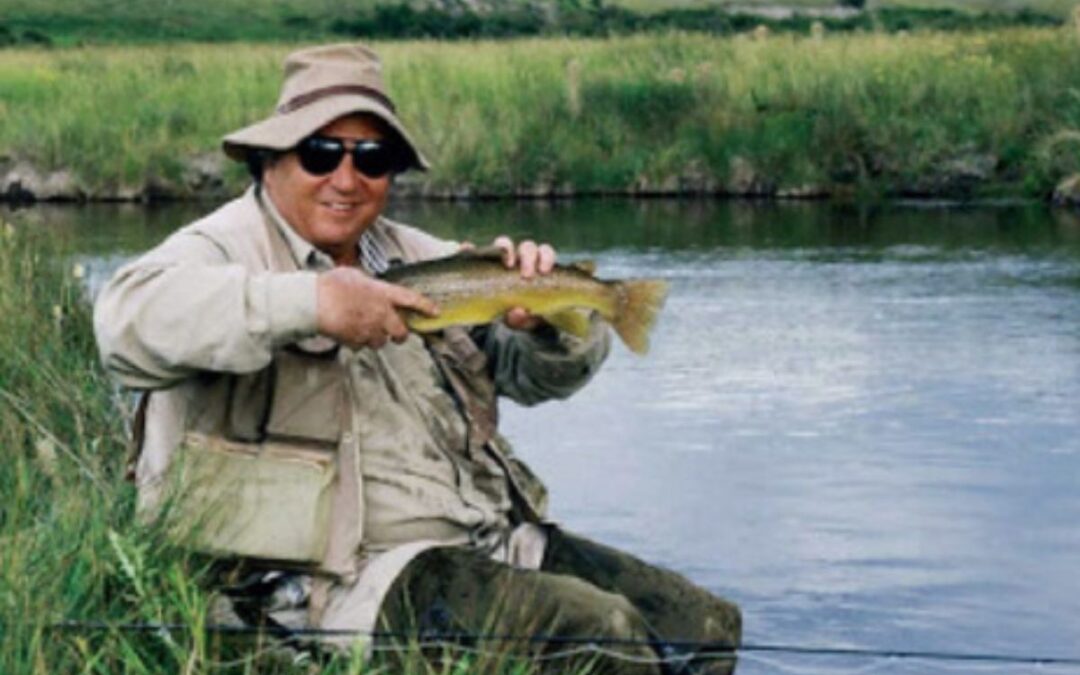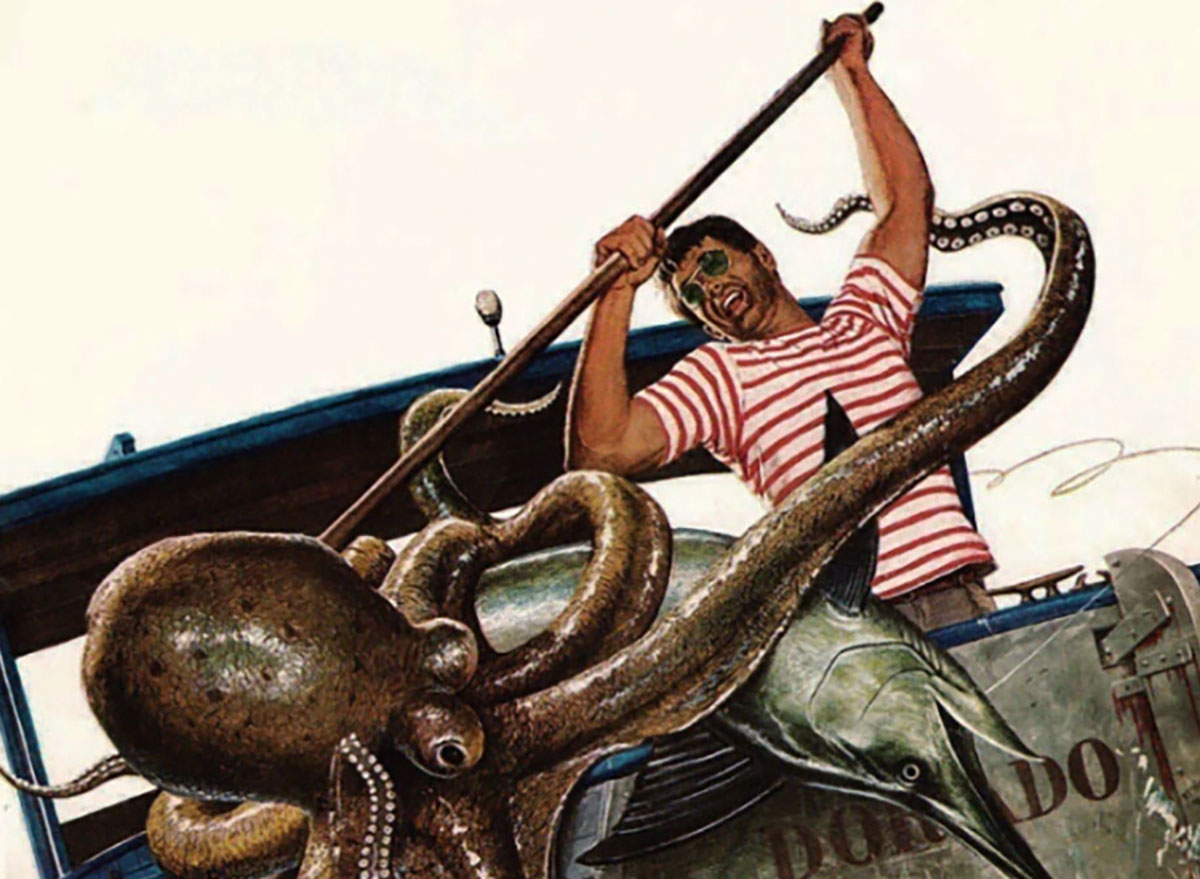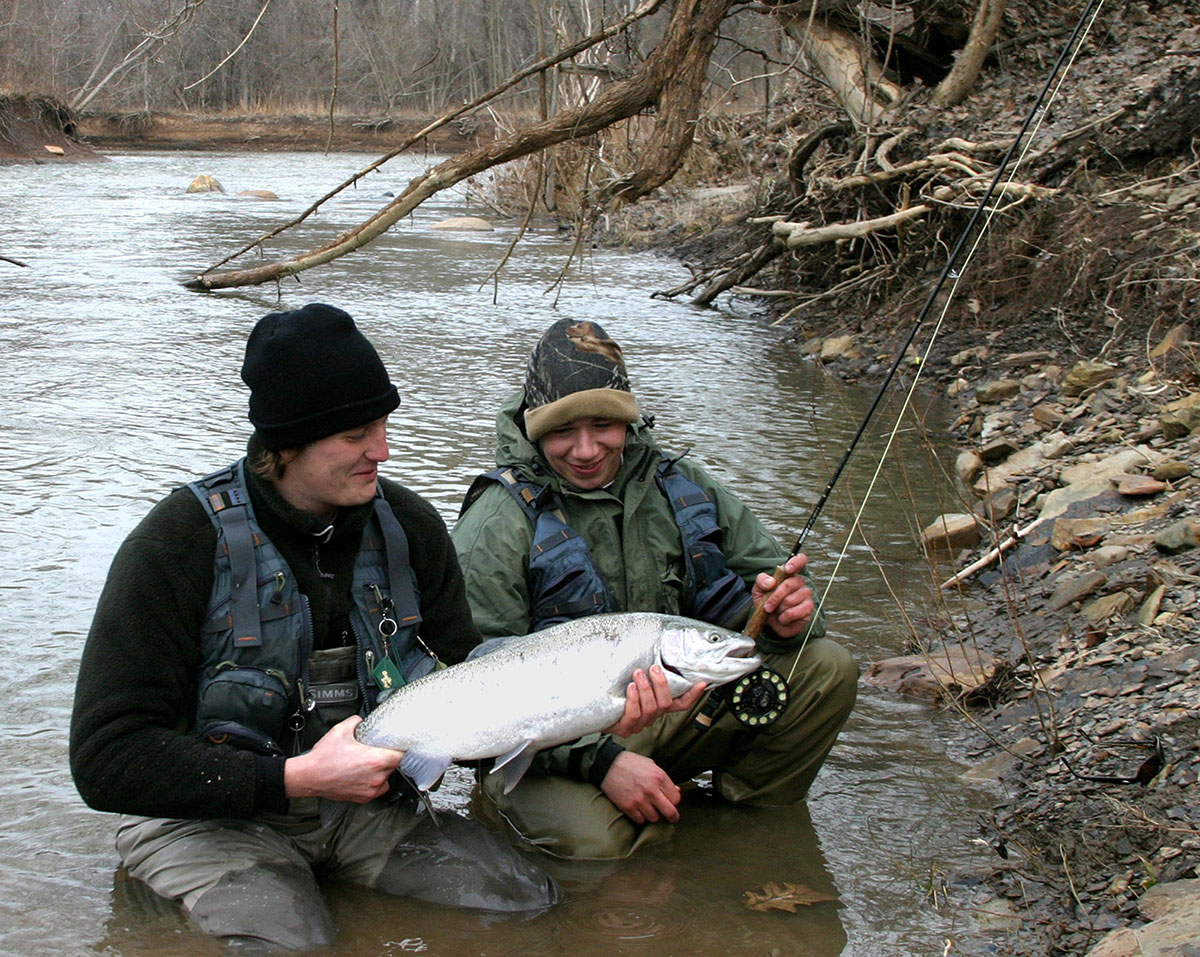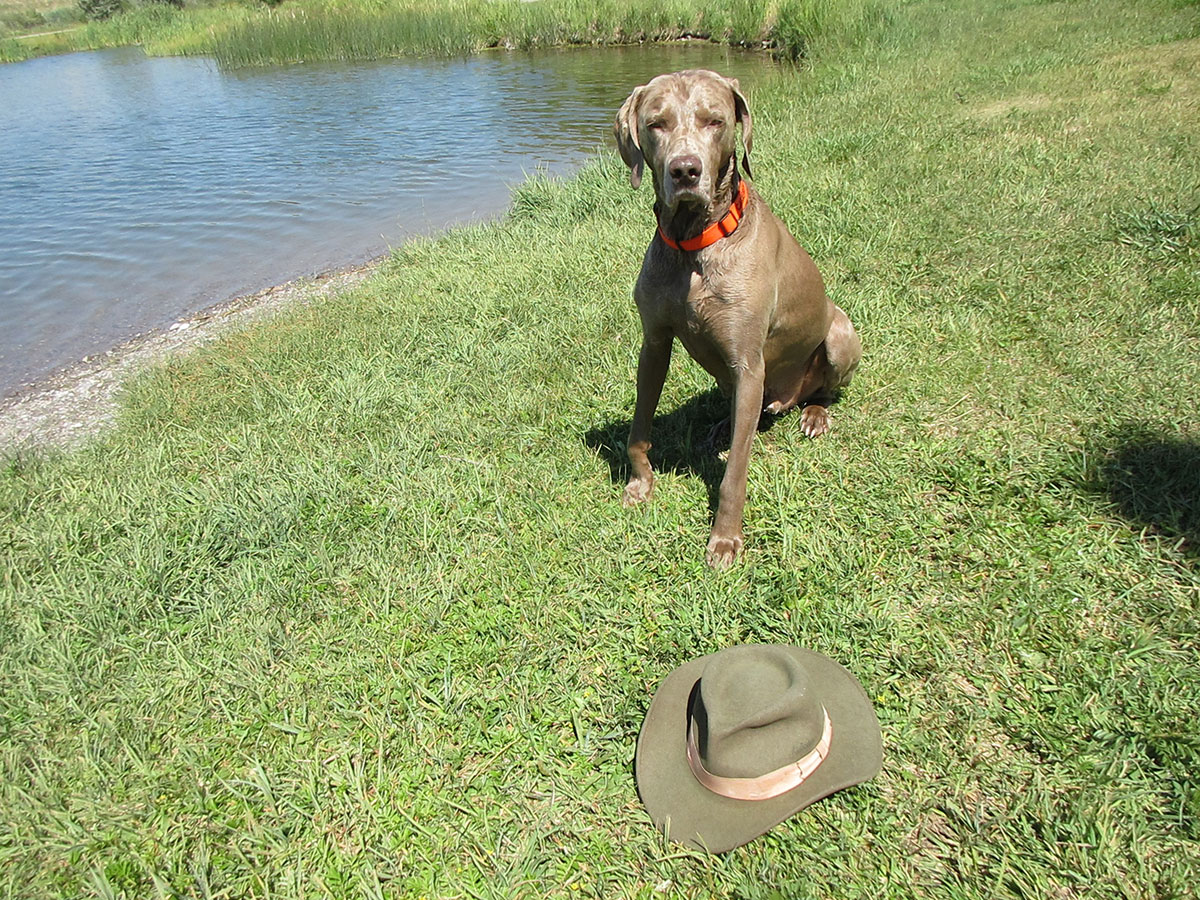Anyone who reads Nick Lyons’ Fire in the Straw will come away enriched, enchanted by a style that is at once pithy and persuasive, and enlightened.
I would contend, with plenty of evidence to support my views, that over the course of the last half century there has been no more important figure in American sporting literature than Nick Lyons. His contributions, particularly when it comes to works on angling, touch many areas. There are, for starters, his stellar efforts as a writer. With the appearance of his latest book, Fire in the Straw: Notes on Inventing a Life (Arcade Publishing, 2020—ISBN 9781-951627195—Hardbound $24.99), his books on fishing total upward of a dozen original works along with another half dozen or more anthologies he has edited with his meticulous attention to detail and uncanny eye for what fellow fanatics of the long rod and whistling line are likely to enjoy.
Then there is Nick’s work in another editorial guise—as the individual responsible for seeing efforts of other writers through the publishing process to the printed light of day. For many years he worked from Crown Publishers in this capacity (amazingly while holding a full-time position as an English professor at Hunter College), and then he was the founder of a leading player in the field of outdoor books in the past three decades, Lyons Press (later Lyons & Burford and today Skyhorse Publishing, with his son currently at the helm of a major producer of new titles).
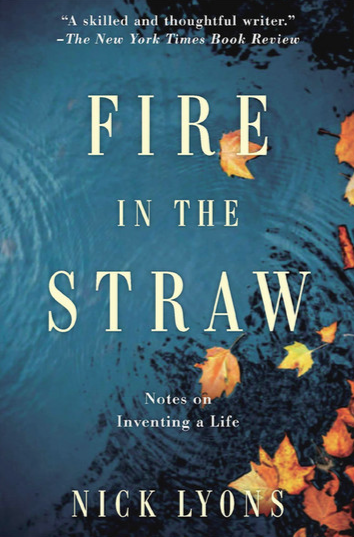 Yet the arena where his impact has arguably been the greatest is one which most readers, even his avid fans, will be vaguely aware of at best. This involves his unstinting efforts as a mentor, exemplar, sympathetic ear and perpetually flowing fount of encouragement to other writers. Perhaps sharing a couple of personal examples of Nick’s involvement in this behind-the-scenes portion of the world of outdoor literature will offer a fuller indication of why scores of contemporary writers look up to him with a degree of appreciation that approaches sheer veneration.
Yet the arena where his impact has arguably been the greatest is one which most readers, even his avid fans, will be vaguely aware of at best. This involves his unstinting efforts as a mentor, exemplar, sympathetic ear and perpetually flowing fount of encouragement to other writers. Perhaps sharing a couple of personal examples of Nick’s involvement in this behind-the-scenes portion of the world of outdoor literature will offer a fuller indication of why scores of contemporary writers look up to him with a degree of appreciation that approaches sheer veneration.
Some three decades ago, when I was just beginning to find my footing in the field of sporting letters, unbeknownst to me (and I suspect today completely forgotten to him) Lyons recommended me as a potential contributor to a start-up fly-fishing magazine. Although the publication is now long gone, the gig that resulted from his putting my name forward opened up some meaningful doors for me as well as providing me much-needed confidence in what I was doing. Fast forward the better part of two decades, with sporadic exchanges by phone and snail mail, and I took the admittedly somewhat brazen and certainly presumptive step of asking Nick to contribute a short Foreword to my book, Fly Fishing in the Great Smoky Mountains National Park: An Insider’s Guide to a Pursuit of Passion. He not only obliged but gave me a tip about adjusting my working title for the book which was invaluable. I have no doubt whatsoever that it added appreciably to sales of the work. Moreover, he offered an encomium that for me was invaluable: “This is a book anyone who knows or plans to visit the Smokies will cherish, but also a book that anyone who takes pleasure in fine writing about the outdoor world and especially fly fishing will admire greatly. I do.” His name carried great weight, and I have no doubt whatsoever that single sentence enhanced sales.
That was an incredibly gracious gesture, given that it came from the guru of modern fly-fishing literature, yet it shouldn’t suggest that by some strange act of geographical transference a lifelong New Yorker had unaccountably decided to adopt a certified hillbilly from the North Carolina highlands as his fair-haired literary stepchild. Far from it, because this personal example of Nick’s generosity has been multiplied countless times over with other writers, struggling and highly successful alike, over the years. That’s just the essence of Nick Lyons—an enormously giving man who has somehow always found the time to help fellow laborers in the vineyards of sporting literature. I owe him a great debt of gratitude, something scores and perhaps even hundreds of others could say in equally heartfelt fashion.
An earlier rendition of this column, dating back seven or eight years, was devoted to an overview of Nick’s impressive list of angling publications, but it is the appearance of his latest work that occasions the present piece and engendered the remarks above. Fire in the Straw is not a full-fledged autobiography or an all-encompassing memoir. Instead, as its subtitle suggests, the work is a loosely linked, chronologically arranged collection of cameos focusing on important (and intensely interesting) interludes in the life of an octogenarian author/editor. Magnanimous as ever, Nick responded to a number of questions the work raised in my mind and that may well come to the forefront with other
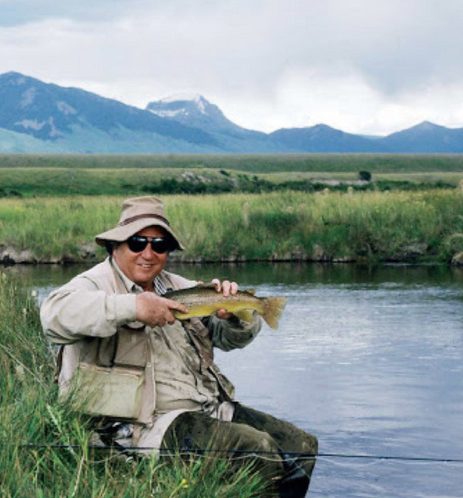 He reckons that the first vague rumblings of an exercise in autobiographical expression came to him some six decades ago, and the opening chapter in this work is a refined version of his muse being put in motion in a small room in Greenwich Village deep in yesteryear. From that point forward we get interesting, incisive, sometimes poignant and invariably powerful glimpses of a literary icon in the making. There are all sorts of delightful side excursions. For Nick, as for noted novelist Pat Conroy, basketball consumed his innermost being, something seemingly alien to a fellow of short stature whom you would never associate with athletic endeavor. He offers insight on the joy and despair to be found in the academic world—the pure pleasure of the actual act of teaching and sharing with questing young minds and the soul-destroying gloom of dealing with callous, uncaring administrators exemplifying the Peter Principle or, more crudely, the truth inherent in the phrase “shit rises to the top.” Having traveled a similar road for almost exactly the same amount of time as Nick (upwards of a quarter century), empathy came easily in these parts of the book.
He reckons that the first vague rumblings of an exercise in autobiographical expression came to him some six decades ago, and the opening chapter in this work is a refined version of his muse being put in motion in a small room in Greenwich Village deep in yesteryear. From that point forward we get interesting, incisive, sometimes poignant and invariably powerful glimpses of a literary icon in the making. There are all sorts of delightful side excursions. For Nick, as for noted novelist Pat Conroy, basketball consumed his innermost being, something seemingly alien to a fellow of short stature whom you would never associate with athletic endeavor. He offers insight on the joy and despair to be found in the academic world—the pure pleasure of the actual act of teaching and sharing with questing young minds and the soul-destroying gloom of dealing with callous, uncaring administrators exemplifying the Peter Principle or, more crudely, the truth inherent in the phrase “shit rises to the top.” Having traveled a similar road for almost exactly the same amount of time as Nick (upwards of a quarter century), empathy came easily in these parts of the book.
You’ll garner a lot from the author’s reading preferences and simply cataloging a list of the authors he mentions along the way would give anyone who devours fine books a lengthy guidepost for untold hours of armchair delight. Partnering nicely with thoughts on other authors, there is plenty of input on how Lyons has functioned as a writer and coverage of subjects of immense importance to him—not just fishing or teaching but a wonderful chapter on his mother; a charming look back and wonderfully moving treatment of his lifelong love affair with his wife Mari, a talented and widely acclaimed artist; ruminations on the world of book publishing; and much more. He shared with me the fact that he had had the book’s title, which comes from Thomas Lodge’s late 16th century book, Rosalynde, in mind for half a century.
He feels every writer has “some fire in our straw” and that what is required is some type of “fan to bring it forth.” For him, the death of Mari, his beloved partner, mother of his four children and life mate, seems to have been something of a catalyst kindling the long smoldering flame. Eventually, in fits and starts following her passing, things seemed to come together and Nick realized “I had to get this lump of something out of my brain, where it had nibbled for more than 50 years. You have the result, for better or worse.” Rest assured that from this reader’s perspective it is decidedly for the better. The words from Thomas Lodge that inspired the title encapsulate the heart of the matter: “Fire cannot be hid in the straw, nor the nature of man so concealed but at last it will have his course.”
We are blessed by this work, one that might in some way be viewed as a capstone to a wonderfully fruitful career, although I would hasten to add that I hope there are still books aplenty to come from a master of modern nonfiction. Certainly anyone who reads Fire in the Straw will come away enriched, enchanted by a style that is at once pithy and persuasive, and enlightened. Along the way they will have been entertained and driven to the inescapable realization that this work is a masterpiece of its genre.
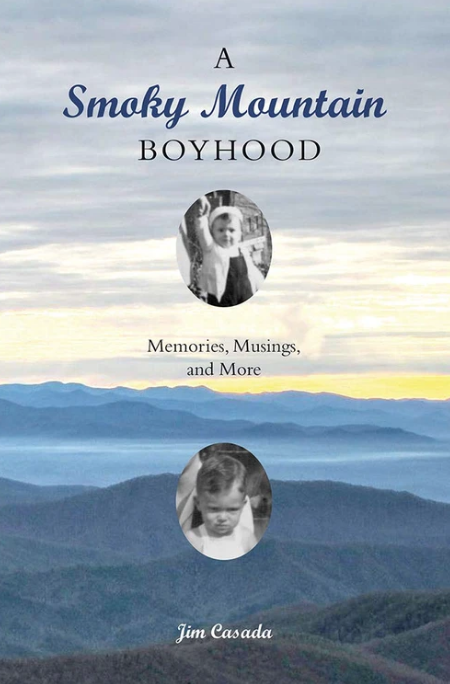 Longtime book columnist and Sporting Classics Editor-at-Large Jim Casada has recently published a memoir of his own. It is A Smoky Mountain Boyhood: Memories, Musings, and More from the University of Tennessee Press. Divided into four sections—“High Country Holiday Tales and Traditions;” “Seasons of the Smokies;” “Tools, Toys, and Boyhood Treasures;” and “Precious Memories”—each of the book’s parts reflect on a memorable coming-of-age in the Smokies. Among the work’s focal points are traditional folkways; hunting and fishing; growing, preparing, gathering and eating wide varieties of foodstuffs; and the overall fabric of mountain life in yesteryear.The book is available through the Sporting Classics Store. Buy Now
Longtime book columnist and Sporting Classics Editor-at-Large Jim Casada has recently published a memoir of his own. It is A Smoky Mountain Boyhood: Memories, Musings, and More from the University of Tennessee Press. Divided into four sections—“High Country Holiday Tales and Traditions;” “Seasons of the Smokies;” “Tools, Toys, and Boyhood Treasures;” and “Precious Memories”—each of the book’s parts reflect on a memorable coming-of-age in the Smokies. Among the work’s focal points are traditional folkways; hunting and fishing; growing, preparing, gathering and eating wide varieties of foodstuffs; and the overall fabric of mountain life in yesteryear.The book is available through the Sporting Classics Store. Buy Now

